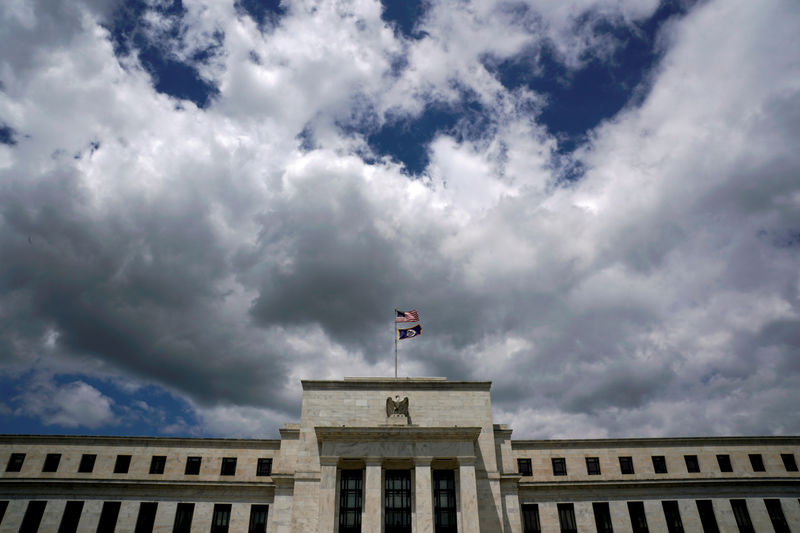By Trevor Hunnicutt and Ann Saphir
NEW YORK/SAN FRANCISCO (Reuters) - Federal Reserve policymakers are coalescing around a plan to stop trimming their $4 trillion balance sheet later this year, remarks from three U.S. central bankers showed on Friday.
And despite apparently competing views on why they need a balance sheet permanently bigger than what they had envisioned only a few months ago, they also agree on a secondary aim: to make the Fed's balance sheet boring again.
"When we started the normalization journey, I promised that it would be the policy equivalent of watching paint dry — and it certainly was, for over a year," Philadelphia Fed President Patrick Harker told a monetary policy conference in New York. "Yet despite laying out a gradual, predictable path, and communicating that path with regularity, the recent interest in the subject makes me wonder if I’ve underestimated the allure of dried paint."
Indeed. Investors have in recent months complained that financial conditions are tightening because of the Fed's gradual reductions to its balance sheet, swollen from trillions of dollars of bond-buying in the post-crisis years.
The reductions are capped at $50 billion a month, a level that Harker and other Fed officials believed would have little effect on markets or the economy.
But even U.S. President Donald Trump was critical, calling on the Fed in a tweet in December to "Stop with the 50 B's."
Minutes of the Fed's January policy-setting meeting, released earlier this week, showed policymakers were well along in a debate over doing just that.
In remarks Friday, Harker said he had proposed ending the reductions to the Fed's asset holdings later this year.
Federal Reserve Governor Randal Quarles said the Fed had discussed doing so "sometime in the latter half of this year." He added that he favors a balance sheet big enough so that on most days banks would have plenty of reserves to manage their liquidity, with the Fed stepping in to add liquidity on "those few days" it might be needed.
But neither bought into the view that the need to stop reductions to the balance sheet has much to do with the economy. Both cast their support for a big balance sheet as a technical measure designed to allow financial markets and banks to function smoothly, rather than as any response to economic conditions.
Some Fed officials speaking in other venues have linked the balance sheet to the fate of the economy.
San Francisco Fed President Mary Daly said Thursday that the Fed's balance sheet policy should not work at "cross purposes" with interest rate policy, now on hold as the Fed assesses whether the economy is strong enough to withstand further tightening.
Speaking in New York on Friday, St. Louis Fed President James Bullard took aim directly at the view that shrinking the Fed's balance sheet has any impact on the economy. He said his analysis shows that the Fed's bond holdings only impact the economy when interest rates are near zero, and that the impact of a shrinking balance sheet, with rates now between 2 percent and 2.5 percent, is relatively minor.

"Balance sheet policy may be less important today than it was during the heyday of QE," Bullard said, referring to the central bank tool of bond buying, known as quantitative easing.